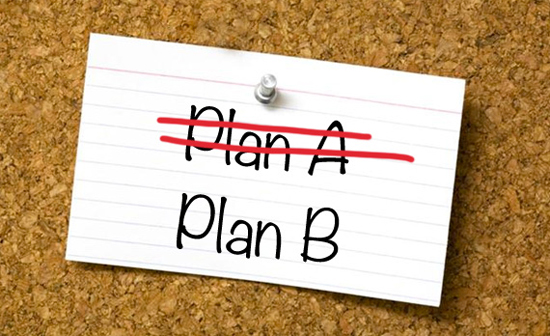10 tips to improve adaptability skills
Here we’ll take a look at four skills to nurture as you embark on developing your team’s ability to adapt: 1. Think creatively Your t...
http://interviewquestions68.blogspot.com/2017/11/10-tips-to-improve-adaptability-skills.html
Here we’ll take a look at four skills to nurture as you embark on developing your team’s ability to adapt:
1. Think creatively
Your team should be encouraged to explore different avenues for fostering creativity and accomplishing work goals with a new mindset. Those who tend to stick to the same tried-and-true methods are likely to have decreased flexibility and will resist change. Be prepared to give your team a little extra effort.
2. Embrace ambiguity
It is key for companies to encourage an environment where change is embraced, even when ambiguity is involved. Traditionally, companies tend to cut down on innovation when uncertainty is present; instead, it needs to be welcomed. A conscious effort should be made to maintain a positive mindset and to come up with new ways of seeing and doing things.
3. Exercise emotional intelligence
A much-discussed focus of self-management skills courses, particularly those offered in graduate business programs, emotional intelligence means controlling and filtering one’s emotions in a constructive manner. This leads to easier adaptation when working with new teams and developing a better rapport with colleagues.
4. Shift focus
The ability to maintain or shift focus in accordance with an organization’s changing priorities is another critical skill that indicates higher levels of adaptability and flexibility in employees. Those who maintain consistent focus on individual- and team-based operational goals — while using creative and critical thinking processes to solve challenges — are critical in a dynamic environment.
5. Go for more variety. Get out of your comfort zone. Put yourself into very different situations than those you typically encounter. Operating in a variety of situations and roles will help you become more flexible and adaptable.

6. Get feedback. Research shows that people who reflect on their performance are more likely to be flexible in adapting to changes in their environment. And therefore better able to identify alternative ways of behaving to be more effective in given situations.
7. Laugh at yourself. Having a sense of humor about yourself only serves to humanize you. When you fail, reflect on what went wrong, adjust course, and don’t repeat the same mistake next time. Learning and improving your adaptability along the way is the goal, not perfection.
8. Pull back on overused skills. Strengths become overused skills when you use them, regardless of the situation. Be more precise and adjust to the specific need.
9. Get comfortable walking someone else’s talk. Having to support someone else’s program or idea when you don’t really think that way or agree is a common paradox. You have to be a member of the loyal opposition. Don’t let it be known to others that you are not fully on board. Your role is to manage this vision and mission, not your personal one. If you have strong contrary views, be sure to demand a voice next time around.
10. Redress the balance. Don’t stick rigidly to one way of operating. Pay attention to what the situation requires of you and adjust accordingly.


